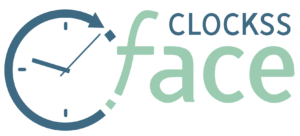Thank you for being part of the largest global community in digital preservation!

2022-2023 Highlights
The CLOCKSS community is growing! Content has been added to the archive from 556 participating publishers including 82 new ones. We are delighted to welcome all new publishers and note that they range in shape and size from OA monograph publishers hosted on OAPEN through to Kluwer Law International. This year the archive has grown to include 53 million articles and 467,000 books. This includes content from publishers in an amazing 61 countries.
We continue to enjoy support from three hundred libraries in fourteen countries and are keen to increase the number of active participants. This past year we welcomed the library at Utrecht University as a CLOCKSS supporter, for example, and entered into a single agreement with the University of Michigan in its roles as library, publisher, and aggregator of content published by others.
If you’re looking to ensure the security and safety of content published by and on behalf of researchers on your campus, then please take 5 minutes to read and reflect on how CLOCKSS can complement your digital preservation strategy. You can read more about our value proposition for the research library community below.
Why would we like to increase library support? CLOCKSS was founded as a joint initiative by libraries and publishers, but gradually over time more of our financial and participant support has come from the publishing community. It is essential to restore the balance. One reason is that active library support demonstrates the importance you place on digital preservation when we engage with publishers on your behalf. Another reason is that library roles are changing, and increasingly you are publishing in your own right. Let’s work together to ensure that scholarship is preserved in a resilient way for the future!

Our revenues increased modestly in 2022, and we made a small surplus. This enabled CLOCKSS to increase its membership fees by only 3% during 2023, at a time of very steep inflation. We continue to find ways to add value to our services, to increase efficiency, and to increase diversity and inclusion. We are careful stewards of both the content and the money entrusted to us by libraries and publishers.
CLOCKSS Numbers 2022-23 (Since July 2022)

2,180 eJournals added – 36,702 total
6.3% increase

3,372,031 eJournal articles added – 53,053,579 total
6.8% increase

26,898 eBooks added - 466,748 total
6.1% increase
64 total triggered journals, accessed 228,055 times in the last 12 months.

- Preserving content in 61 Countries
- 556 active Participating Publishers, from 59 Countries
- 300 Supporting Libraries, from 14 Countries
CLOCKSS Node Libraries:
Australian National University, Humboldt-Universität zu Berlin, Indiana University, National Institute of Informatics, Japan, OCLC, Rice University, Stanford University x 2, University of Alberta, Università Cattolica del Sacro Cuore, University of Edinburgh, University of Virginia
Some internal highlights:
CLOCKSSface, a new account management tool, has launched. It allows us to provide participating publishers and supporting libraries with a better service by centralizing notes about the way we work together and the status of any development work underway to enable the preservation of content.
The system enables libraries and publishers to review contracts, invoices, and account details. Most importantly, the system enables you to drill down to find out more about the content we are archiving here at CLOCKSS on behalf of authors, libraries, and publishers. For a short video about how to set up an account or for publishers to access their holdings report, click below.
We are working with stakeholders to address a range of strategic issues in digital preservation. Topic include increasing diversity, equity and inclusion; understanding and improving our environmental impact; and identifying and overcoming obstacles to long-term preservation of scholarship.
We are proud of our community governance, and our active Board of Directors comprised equally of libraries and publishers.
External Projects:
JASPER – We continue to archive diamond Open Access titles via the JASPER project, and rely on our supporting libraries for the financial support to enable this archiving to take place. Thank you!
OA Books Preservation – CLOCKSS in partnership with the Directory of Open Access Books (DOAB) and OAPEN, commissioned research to explore the preservation of Open Access books from Mikael Laakso at the Hanken School of Economics in Finland. Mikael has finished his work and posted a preprint: Open access books through open data sources: Assessing prevalence, providers, and preservation.
NASIG Model Digital Preservation Policy – SciFree at the University of Stockholm has become the second publisher to implement a new preservation policy based on the NASIG model policy. Interestingly, both implementers to date are library-based publishers.
DPSC Planning Project The IMLS-funded project led by Educopia with APTrust, Chronopolis, CLOCKSS, LYRASIS, MetaArchive, and Texas Digital Library to advance collaboration among community-supported digital preservation services continues apace and brings us closer to the library community in North America.
Model digital preservation license language – A working group of librarians has now completed its work which has been endorsed by CRL and given a permanent home on its website.
Digital Preservation Coalition- Alicia had been elected to the Board and is leading revision of the BitList for orphan works.
Thank you for your continued support and we look forward to sharing more successes with you in 2024 and beyond.
Alicia, Brett, Kim, Meghan, Thib and the rest of the CLOCKSS team
info@clockss.org

